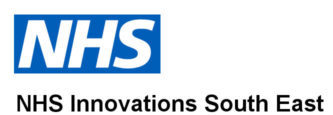Answers to the questions you wish you had asked!
Yes but what is NISE?
NISE is the NHS Innovations’ South East Hub and was set up to assist Trusts in their obligation to the Department of Health to protect and exploit all intellectual property that is generated by employees of the NHS.
What is IP?
Intellectual Property (IP) can be described as the novel or previously undescribed tangible output of any intellectual activity. It has an owner and can be bought, sold or licensed and must be adequately protected. It can include inventions, industrial processes, software, data, written works, designs and images.
What do you mean by 'innovation'?
Innovation is the process by which ideas can be developed to solve problems, make life easier, improve existing methods or provide new ways of doing things. An important part of any invention is its application in a commercially successful way. Examples of innovation include training packages or manuals, best practice guidelines, new uses for drugs, diagnostic tests, modifications to equipment, new or improved medical devices, software, and databases. All of these innovations can be protected by intellectual property rights. An example of which is written information and diagrams, these can be protected by copyright; inventions can be protected by patents.
Do I own my idea/innovation?
In general, innovations that have been developed in the course of your employment/normal duties will be owned by your employer The rules of ownership can be complex. Ownership may be affected by funding received for work that led to the innovation. Each Trust should have an IP Policy, which should have been incorporated into your terms of employment contract. We strongly recommend that you seek advice if you are unsure.
Why should I bother having a good idea if I don't own it?
You may still benefit from its exploitation. NHS organisations with IP policies in place, should detail how any income generated from commercialising good ideas is shared with the relevant members of staff. The exact details of how any income is divided vary between organisations. In the majority of cases, staff will receive between 25% and 50% of the net income.
But what if I have my idea at home?
If you have an idea at home that is related to your NHS employment it is likely to be owned by your employer
I have a good idea, what should I do?
Keep it secret and contact the person responsible for IP in your Trust (e.g. R&D Manager, Research Governance Co-ordinator). They will be able to give you some initial advice and refer you to the Innovations Manager from NHS Innovations South East that is responsible for your region.
I would like to speak to a company/other organisation about my idea, what should I do?
It is important to protect the confidential nature of the information that you may disclose in any discussions. In a situation where you have identified a company/organisation to work with, you should have a Non Disclosure Agreement (NDA) in place before you share information. NDAs are also referred to as CDAs - Confidential Disclosure Agreements
I have heard about non disclosure agreements, what are they?
Non-Disclosure Agreements (NDAs) are put in place between two or more parties (e.g. the inventor, the Trust, the commercial organisation) who would like to share information which is of a confidential nature. The agreement is used so that all parties involved are obliged to maintain the confidentiality of the information disclosed and not use the other's confidential information without permission.
I have spoken to a company about my idea, is that OK?
If you have already spoken with an external organisation about your idea without first putting an NDA in place, you and your trust (who also may own the IP) are not protected against the company using the information without acknowledging, or conferring any benefit to you or your Trust. However, it may in some cases be possible to put a retrospective agreement in place, if the company are willing to sign this. The Unregistered Design Right, like copyright, is an automatic right. We recommend that records are maintained (e.g. copies of your design and any other accompanying material), which are dated and signed. Verification can be simply done by sending via recorded delivery a copy to a place such as the R&D Office in a Trust for safe keeping. It is important that the envelope remains unopened until such a time when it is necessary to prove the date upon which the designs first existed.
Can I publish a paper on my idea?
As it is important that you keep your ideas secret until they are properly protected we suggest you first speak to your R&D Manager/ IP Coordinator. For example, you cannot patent an invention if you have already published information about it. Companies are less interested in developing an idea if you have already disclosed your idea to the public. Protecting your idea can delay but not necessarily prevent publication. However, if you are able to gain patent protection and/ or identify a partner to develop your idea, there are greater potential benefits for both the NHS and you.
How do I copyright a piece of work?
Copyright is an automatic right, which exists as soon as the work has been created. It is good practice to acknowledge ownership of copyright as this can act as a deterrent to anyone wanting to copy the work. To copyright the work, include the following statement:
©2018 ABC NHS Trust. All rights reserved. Not to be reproduced in whole or in part without the permission of the copyright holder.
How can I protect my designs?
Designs may be protected by either a Registered Design Right or an Unregistered Design Right depending on their nature. For a design to be protected under the registered design right, they must be registered at the Designs Registry, which will incur a fee.
